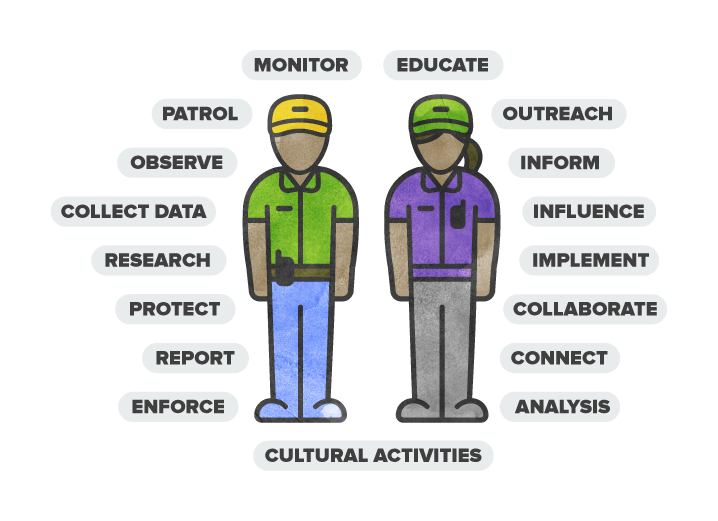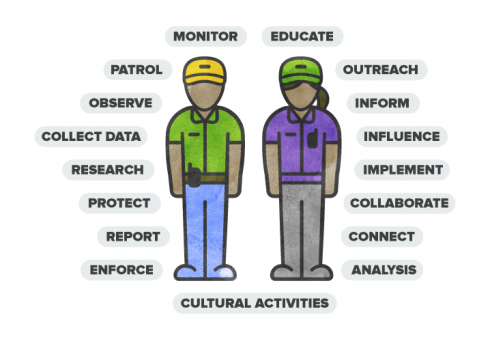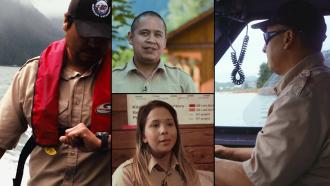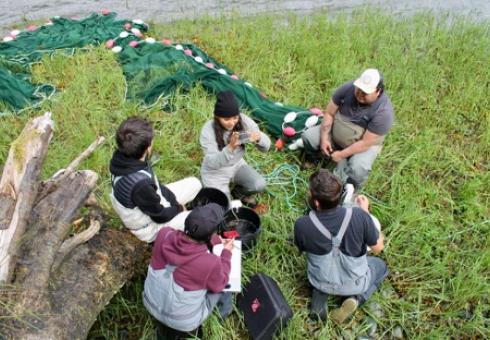
- Actively patrol, monitor and demonstrate a presence on lands and waters.
- Integrate local and traditional knowledge to manage and steward lands and waters.
- Maintain and promote cultural continuity (youth elder mentorships, on-the-land youth programs, subsistence harvesting, language camps, etc.).
- Monitor, research and collect data on priority issues (i.e. wildlife, climate, contamination, visitor impacts, illegal activity, compliance, etc.).
- Analyze and use data collected to inform and influence management plans and decisions.
- Prioritize and conduct ecological restoration work.
- Work with the community and general public to ensure that laws, regulations, guidelines, and protocols are understood and followed.
- Build relationships with and educate other resource users about key stewardship and management issues.
- Support implementation of resource management plans and agreements.
- Advance and uphold Indigenous authority to steward lands and waters.
Guardians may also fill a host of other roles such as park management or emergency response depending on the program’s priorities and resources.
In addition to paid program staff, many Indigenous Guardian programs also rely on community volunteers who are active on the land and water, and who can contribute significantly to the collection of local knowledge and other observations.




